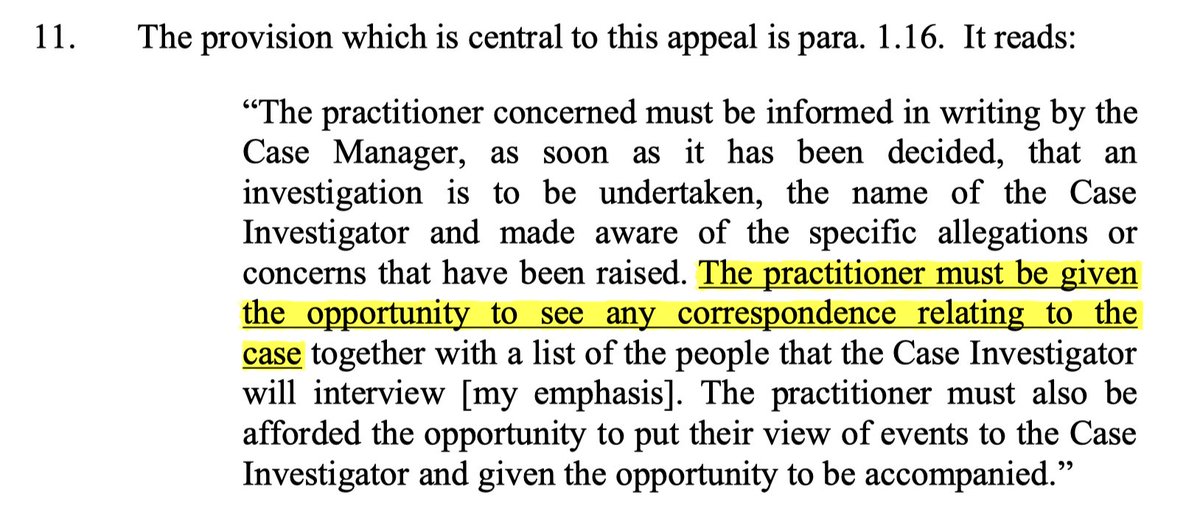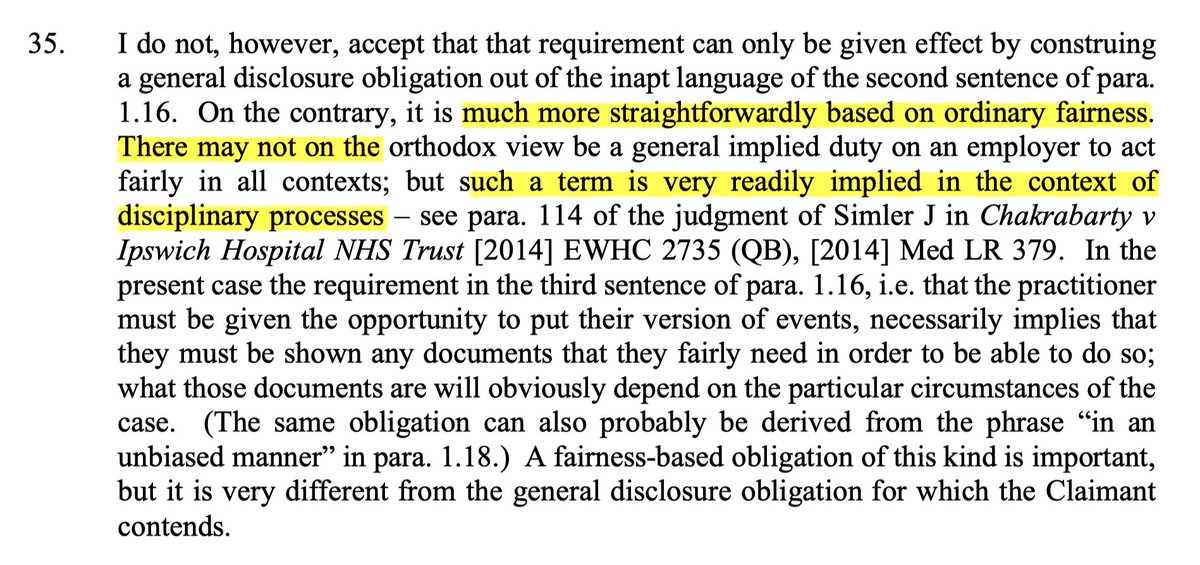
1/ THIS ONE'S A MUST READ: Burn v Alder Hey Childrens NHS Foundation Trust: CA opens up the possibility of an implied duty to act fairly in disciplinary processes, separate from the obligations under the implied term of trust & confidence.
bailii.org/ew/cases/EWCA/…
#ukemplaw
bailii.org/ew/cases/EWCA/…
#ukemplaw
2/ The appeal concerned the MHPS (Maintaining High Professional Standards in the Modern NHS) disciplinary & capability policy & the extent of disclosure required at the investigation stage under para 1.16 of Alder Hey's transposition of that policy. 

3/ Contrary to B's wide reading of it, the CA found that it concerned correspondence rather than all documents & only to correspondence the employee had a legitimate interest in seeing at that stage of the formal process (eg, an invite to an independent practitioner to assist). 



4/ But the point of much wider interest is a discussion, obiter, by both Underhill & Singh LJJ (with Laing LJ agreeing) about whether, & in what sense, there exists/should exist an implied duty on the employer to act fairly towards the employee.
5/ Singh LJ started by noting a difficulty with a general implied duty to act fairly is that it would cut across the employer's common law contractual right to terminate without reason so long as contractual obligations, eg notice provisions, are complied with. 

6/ However, he left open the question whether procedural unfairness should only be governed contractually by the implied term as to trust & confidence or whether a separate narrower implied term could be relied upon that disciplinary processes will be conducted fairly. 

7/ It wasn't a matter relevant to the grounds of appeal in this case, so could only be obiter. Singh LJ preferred to leave proper analysis to a future case, but gave positive vibes to anyone making that argument in the future, noting it's hardly a revolutionary leap from Braganza 

8/ Underhill LJ made clear he is similarly taken with the possibility of such an implied term lying independently to the trust and confidence term. 





9/ So it's very much a case of watch this space. It'll be interesting to see how this might develop, how the implied term might be defined & what extra ammunition it might provide employees over & above the possibility of relying on the pre-existing trust & confidence obligation.
• • •
Missing some Tweet in this thread? You can try to
force a refresh




